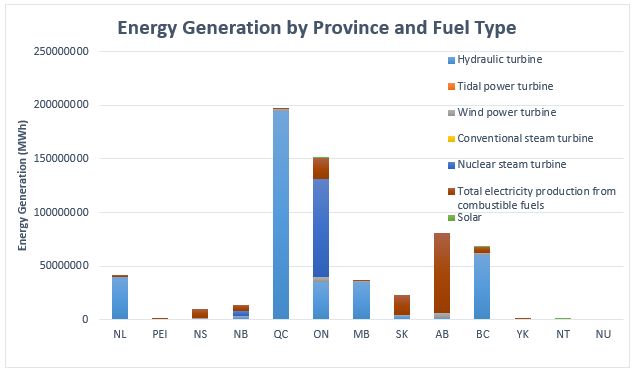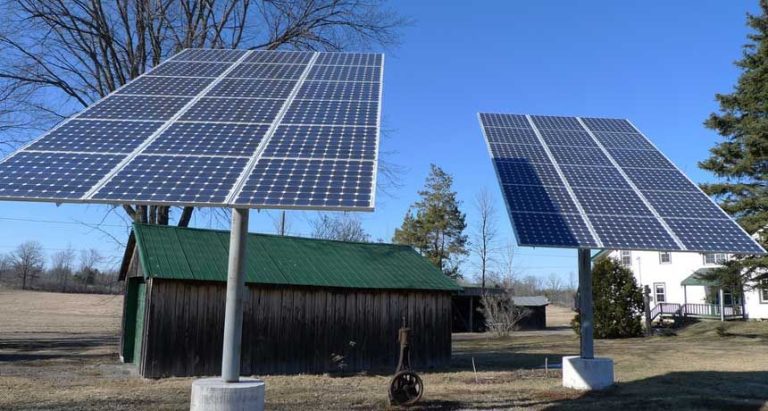Does Florida Really Pay For Solar Panels?
Does Florida Really Pay You to Go Solar?
Florida is known as the Sunshine State, and for good reason. This southern state enjoys abundant sunlight all year round, with Tampa averaging 361 sunny days per year. All that sunlight makes Florida an excellent state for generating solar power. In fact, Florida ranks 3rd in the country for installed solar capacity, with over 3.8 gigawatts of solar energy currently powering homes and businesses.
With such ideal conditions for generating solar power, you may be wondering if Florida offers any incentives or rebates for installing solar panels. The answer is yes! Florida has several solar incentives that can help make going solar more affordable. Keep reading to learn more about the solar panel rebates and tax credits available to Florida residents.
Solar Incentives in Florida
Florida offers a variety of incentives for homeowners who install solar panels on their property. The main solar incentives in Florida include:
- Federal solar tax credit – This provides a 26% tax credit for systems installed in 2022, and 22% for systems installed in 2023. The credit drops to 0% for systems installed after 2023.
- Property tax exemption – Florida provides a property tax exemption on the added value solar installations bring to the property. This can save homeowners thousands of dollars over a solar system’s lifetime.
- Net metering – Florida’s net metering policy allows solar panel owners to get credit for excess electricity sent back to the grid. This credit offsets the electricity used at night or during cloudy weather.
- FPL solar rebate – Florida Power & Light provides a rebate up to $500 for installing a new solar water heating system.
- Solar equipment sales tax exemption – Solar equipment purchases in Florida are exempt from the state’s sales tax.
These incentives make installing solar panels in Florida an attractive investment for many homeowners looking to go green and reduce their energy bills.
Cost of Solar Panels
The average cost to purchase and install solar panels in Florida ranges from $15,000 to $25,000 before incentives and tax credits. However, the cost can vary significantly based on the size of the solar system, type of panels, location, and installation complexity.
The size of the solar system is the biggest factor determining overall costs. The more solar panels installed, the higher the total price. For a typical 6 kilowatt residential system, expect to pay around $18,000 before incentives. Larger commercial and utility-scale systems can easily cost hundreds of thousands of dollars or more.
The type of solar panels also impacts costs. While most solar panels for homes are made of monocrystalline or polycrystalline silicon, more efficient and higher performance panels usually carry a premium price. Professional installation by a reputable solar company is recommended, which adds labor costs to the total price. Rooftop installations are generally more affordable than ground mount systems.
Florida has ample sunshine year-round, making it a very solar-friendly state. With the right incentives, solar power can pay for itself in energy savings within 5-7 years. While solar does require an upfront investment, the long-term returns can make it very worthwhile for many homeowners and businesses.
Return on Investment
When deciding whether to install solar panels, one of the most important factors to consider is the return on investment. This determines how long it will take for the upfront costs of solar panels to pay for themselves through energy savings.
In Florida, most homeowners can expect to break even on their solar panel investment in 6-8 years. This breakeven period depends on several variables:
- Cost of solar panel system – More expensive systems take longer to recoup costs
- Available sun exposure – More sunlight equals more energy production and savings
- Electricity rates – Higher rates make savings from solar more valuable
- Electricity usage – Homes with higher usage see greater savings from solar
- Local incentives – Rebates and tax credits improve ROI
While solar panels do require an upfront investment, the long-term savings make them worth it for most Florida homeowners. And as electricity rates continue to rise over time, the value of solar only increases. After the breakeven period, solar panels will provide decades of free electricity.
Net Metering in Florida
Net metering allows solar panel owners to get credit for any excess electricity they generate and send back to the grid. Instead of just powering your home, any surplus solar energy gets fed into the wider grid, offsetting electricity that would’ve been generated from fossil fuels.
This means your electric meter can essentially spin backwards when your solar panels produce more power than your home is using. The utility company will then credit your account for those surplus kilowatt-hours (kWh).
At night or during cloudy weather when solar isn’t producing energy, you’ll draw electricity from the grid as usual. Your monthly bill will show both your electricity usage and any excess solar credits.
Florida requires investor-owned utilities to offer net metering to customers at the full retail electric rate. So the credits you earn are worth the same as the electricity you buy from the grid. There’s no distinction between solar energy and regular electricity.
One thing to note is that net metering credits do not carry over month-to-month in Florida. At the end of your billing cycle, any unused kWh credits are essentially wiped clean.
Community Solar
Community solar programs allow utility customers to share the benefits of solar power even if they cannot or prefer not to install solar panels on their property. With community solar, customers subscribe to a portion of a shared solar array located elsewhere within their community or utility service area. The customers receive credits on their electricity bills for their portion of the power produced by the community solar array.
The two largest community solar programs in Florida are offered by utilities Tampa Electric Company (TECO) and Florida Power & Light (FPL). TECO’s Solar Partners program has a 1.5 MW community solar array located in Hillsborough County. FPL’s SolarTogether program has multiple 74.5 MW solar arrays across the state. Customers in the TECO and FPL service territories can subscribe to blocks in these community solar arrays to receive monthly bill credits.
Community solar allows more utility customers to access solar power without needing to install rooftop panels. It provides a more affordable and flexible solar option for renters, apartment dwellers, homeowners whose roofs are not suitable for solar panels, and anyone else interested in supporting clean energy. As community solar grows in Florida, more customers will be able to benefit from solar power generation.
Most Solar Friendly Utilities
When it comes to installing solar panels in Florida, some utility companies offer better incentives than others. The most solar friendly utilities in Florida are:
Florida Power & Light (FPL) – FPL offers a generous net metering program that allows customers to get credit for excess energy sent back to the grid. There are no fees or minimum monthly purchases required. FPL also has specific solar rebate programs.
Duke Energy – Duke offers net metering for solar customers at a 1:1 credit ratio for energy fed into the grid. They have no monthly fees or minimum usage requirements. Duke also provides rebates for solar installations.
Orlando Utilities Commission (OUC) – OUC has a net metering program with a 1:1 credit ratio and no additional fees or minimums. They also offer solar rebates for both residential and commercial customers.
Gainesville Regional Utilities (GRU) – GRU offers a generous solar feed-in tariff to customers, paying above-retail rates for excess solar energy fed back into the grid. This provides great value for solar panel owners.
When selecting a Florida utility company, it pays to research their specific solar incentives and programs. The utilities listed above provide some of the most solar friendly options.
Solar Tax Credits
Florida residents can take advantage of federal and state tax credits when they install solar panels on their home. The federal solar tax credit allows homeowners to deduct 26% of the cost of installing a solar energy system from their federal taxes. This credit applies to both the solar panels and other equipment like inverters and battery storage.
In addition to the federal tax credit, Florida offers additional state tax incentives for going solar. There is no state income tax in Florida. But the state does allow property owners to exempt the added value of a solar installation from their property taxes. So if you add $15,000 worth of solar panels to your home, your property value may increase but your property taxes will not. This can save homeowners hundreds of dollars per year.
The combination of federal and state tax incentives makes going solar in Florida even more affordable. The tax credits and exemptions can offset a significant portion of the upfront costs of installing solar panels. Consult with a reputable solar installer to learn more about maximizing the tax benefits for your specific situation.
More Savings from Solar
Going solar provides additional cost savings and benefits beyond just direct energy bill reductions. Homeowners with solar panels often qualify for lower insurance rates since their roof and home are better protected. Solar also increases a home’s property value and makes it more attractive to potential buyers. There are even some solar installation companies that provide free electric vehicle charging stations with panel installations. With solar power, homeowners gain energy independence and are insulated from utility rate hikes. There can also be an improved quality of life from knowing you are using clean energy and reducing your environmental impact.
Solar panels also require little to no maintenance over their 25+ year lifespan. Once installed, the energy from the sun is free, so solar provides a hedge against inflation and rising energy costs. With solar there are no fuel costs or deliveries to pay for. Solar energy can also generate income for owners through selling excess power back to the grid. Overall, solar panels provide great long-term value in terms of financial savings, property improvements, clean energy usage, and more.
Conclusion
In summary, Florida homeowners have multiple options for financing and saving money with solar panels. The state offers rebates, tax credits, and net metering policies that make solar an affordable investment. While upfront costs can be high, solar panels can pay for themselves in electricity savings within 5-10 years. After that, solar provides decades of free electricity. With Florida’s abundant sunshine, solar panels can offset 70-90% of household energy needs. For those who can’t install rooftop panels, community solar allows sharing in solar savings. By taking advantage of solar incentives, Florida homeowners can profit from clean, renewable energy.







